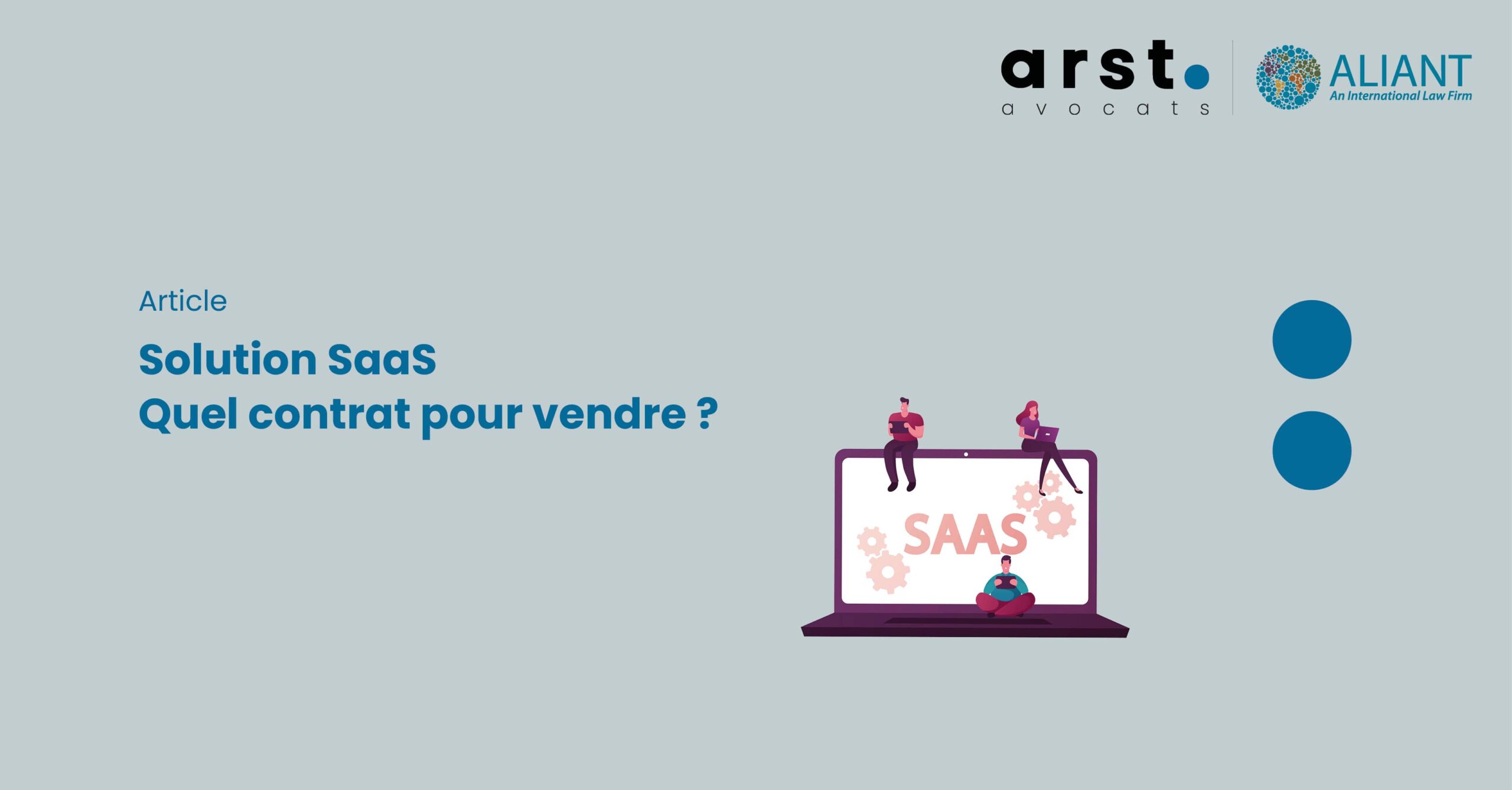
When developing a SaaS Solution comes the time to market it (finally!). And with this commercialization, come many questions:
- do you have to establish a contract to sell to customers?
- what contract to establish?
- can we rely on the model of the neighboring startup which also does SaaS?
- and if we receive the model contract from the client, how to read it?
Here are some tips on the subject.
You (ABSOLUTELY) need a contract
Not using a contract could potentially (i) save you money to set it up and (ii) save you time when selling, but at what cost? Concluding with a simple purchase order or estimate implies leaving a large number of important subjects unclear:
- can you suspend the solution if you are not paid on time?
- what happens if your solution is temporarily unavailable?
- does the customer become the owner of the solutions, modules or databases that you make available to him?
Concluding a contract thus means protecting yourself and your services. It is therefore more than recommended. And you will notice that the internal processes of major accounts, as part of their risk management, (almost) always impose a contract with their suppliers.
No, neighbor's SaaS contract is not recommended
Does the neighboring startup have exactly the same activity as you? the same solution? the same mods? the same customers? the same goals as you? If not, the contract will be different and may call for different regulations. Therefore, and you will often see it repeated by lawyers, using a model could mislead you on legal matters and therefore put your business and your solution at risk.
The specificities of the SaaS contract
The SaaS solution involves three main stakeholders:
- the service provider who developed the solution and who makes it available to its customers;
- the customer who buys access to the solution and the possibility of using it;
- the natural person user who uses the solution within the client's company.
So whatever the form of your contract (general conditions or framework contract), it must include the conditions of sale of the solution to customers and the conditions of use of the solution by users.
Furthermore, the contract for a SaaS solution is specific in the sense that you are not selling a product as such (like classic software), but access to an online service. Thus, your contract must not provide for a transfer of ownership of the solution, but a right of access and use of your solution (important point because your solution is your most important asset and you do not wish to transfer it) .
It should also be clearly provided in this contract:
- the services included in your offer and those which are excluded;
- the volume of users benefiting from your solution;
- the financial conditions and the consequences in the event of non-payment by your customer (interest on late payment, suspension of the solution, termination of the contract);
- the clauses relating to your property: the solution, the source codes, your database, the data and signs already present on the SaaS solution are your property and this must be expressly recalled.
Large accounts will also want to see within the document:
- Solution service levels, which outline your solution's uptime guarantees and expectations in the event of anomalies;
- the security conditions of your solution;
- a GDPR appendix setting out your commitments if you process personal data on behalf of your client.
Negotiate legal terms
Even if the legal language seems particular to you (we understand that), we can only recommend that you carefully read (or have someone accompany you to read) the contract transmitted by your client or the modifications he has made to your contract.
And if certain clauses seem too strict, unbalanced or do not correspond to your solution, do not hesitate to negotiate these clauses and indicate in writing that they do not suit you or do not correspond to your collaboration.
If you cannot negotiate, keep the evidence that a negotiation was impossible, it could be useful to you later if the client wishes to abuse his position of power in an unbalanced way.

Morgan James
author
associate lawyer
Repetition of old-age benefits obtained by fraud
Court of Cassation, Plenary Assembly, May 17...
Biennial prescription: the Court of Cassation finally sets limits in favor of insurers
The obligation to inform insurers about the causes of interruption of the two-year prescription does not require mentioning the entire article 2243 of the Civil Code according to which the interruption does not take place when the claimant give up, leave...
Interview with Romain Picard, young partner of the firm Arst Avocats specialized in Corporate / M&A
Today we welcome Romain Picard, a young partner from Arst Avocats, who tells us about the reasons that led him to join the firm and talks to us about the projects that drive him with regard to the development of the practice of Corporate / M&A in this office...
Repetition of old-age benefits obtained by fraud
Court of Cassation, Plenary Assembly, May 17...
Biennial prescription: the Court of Cassation finally sets limits in favor of insurers
The obligation to inform insurers about the causes of interruption of the two-year prescription does not require mentioning the entire article 2243 of the Civil Code according to which the interruption does not take place when the claimant give up, leave...
Interview with Romain Picard, young partner of the firm Arst Avocats specialized in Corporate / M&A
Today we welcome Romain Picard, a young partner from Arst Avocats, who tells us about the reasons that led him to join the firm and talks to us about the projects that drive him with regard to the development of the practice of Corporate / M&A in this office...